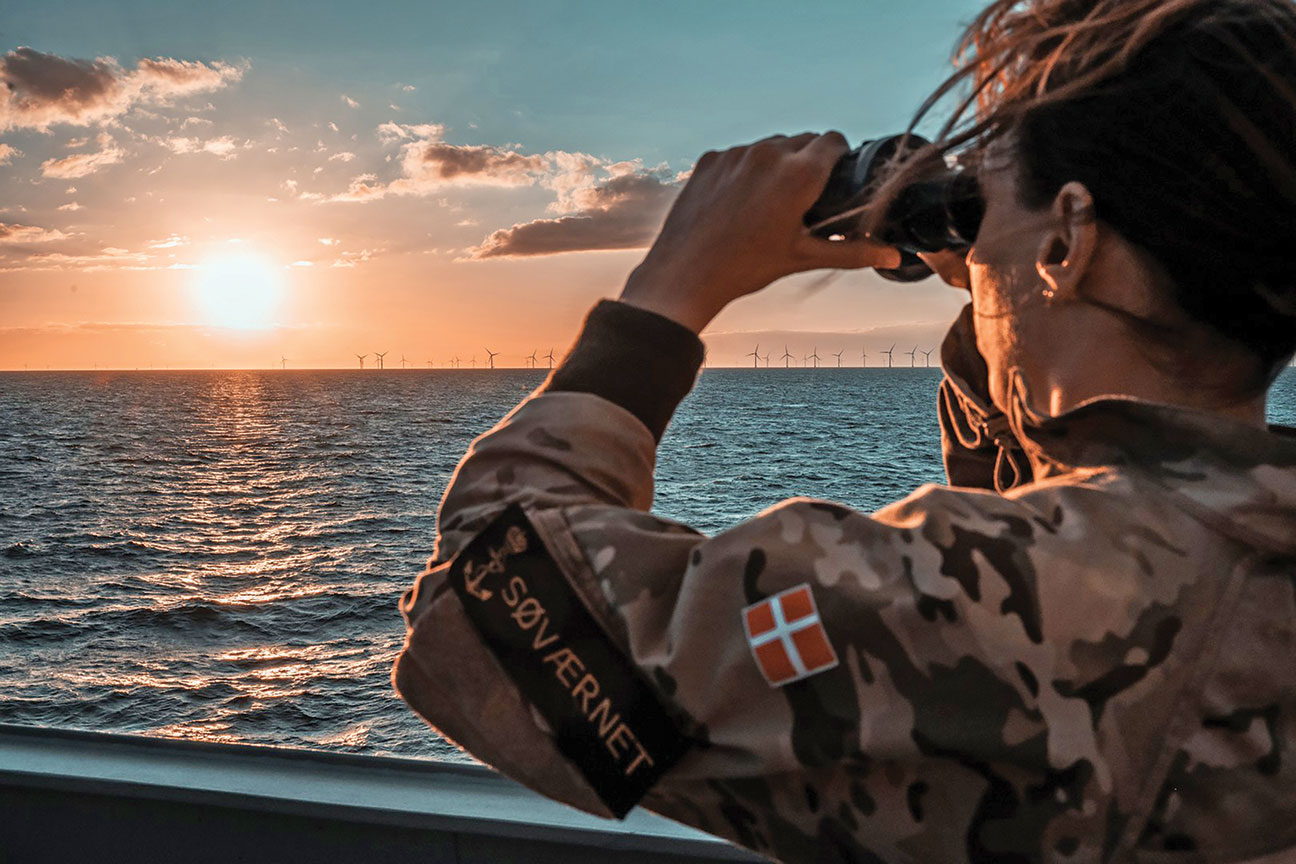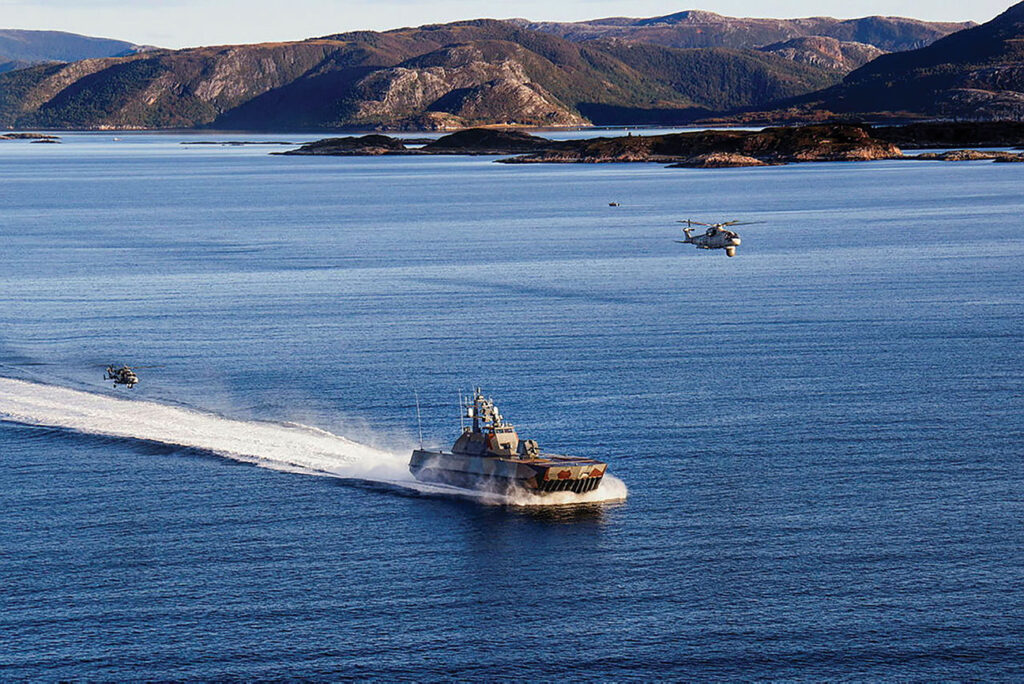A Norwegian Navy Skjold-class corvette is tracked by air assets during a JEF surface exercise in Norway in September 2023. CHRIS SELLARS/U.K. MINISTRY OF DEFENCE
The Joint Expeditionary Force (JEF) stands as a testament to a regional multinational framework that has demonstrated adaptive flexibility, retaining relevance in the fast-changing Euro-Atlantic security landscape. As it looks back at its 10-year anniversary, it is an opportune moment to reflect on its history, achievements and value to security in the High North and North Atlantic regions.
The JEF was launched at the NATO Wales Summit in September 2014, under the leadership of the United Kingdom, via the NATO Framework Nation concept, which was made up of NATO members Denmark, Estonia, Latvia, Lithuania, the Netherlands and Norway. The initial concept was to create a flexible political and military framework that could quickly deploy a multinational force in response to a crisis, particularly in the strategically significant areas of the Baltic Sea, High North and North Atlantic regions. Finland and Sweden, then not in NATO, joined the JEF in 2017, and Iceland in 2021, bringing JEF membership to 10 nations, as it remains today. The backdrop to all of this was the like-minded approach of neighboring nations to enhance their regional security and stability, particularly in the face of emerging threats from Russia.
The JEF’s most significant achievement has been its ability to provide a high-level forum both militarily and politically for neighboring countries to consult and cohere their positions quickly on defense and security challenges in their home region. This forum has facilitated the sharing of intelligence, the development of military JEF Response Options (JRO), and the enhancement of interoperability among its member nations. The JEF’s opt-in nature for all activity has allowed member nations to contribute forces on a case-by-case basis, ensuring efficiency, flexibility and responsiveness in addressing emerging threats. Since the start of the 2022 Russia-Ukraine war, the JEF has been tasked to particularly focus on countering hybrid threats.
The JEF has stepped up to the mark by developing response options and conducting exercises to enhance its capabilities in this area, for instance, activating a JRO in December 2023 that involved deploying naval units to protect critical underwater infrastructure in the Baltic Sea. In June 2024, building on lessons identified on the December 2023 JRO, the JEF activated a trial period of enhanced monitoring of shipping activity near important undersea energy and communications routes, coordinating the detection and interdiction of any unusual or suspicious activity in these areas by JEF nation assets. More recently, the JEF was pleased to see Ukraine observe their signature JEF exercise of 2024, Joint Protector. This exercise took place in Latvia as a large-scale command-post exercise, which saw the Ukrainian Armed Forces contribute via a series of operational deep dives.

Looking Ahead: The Future of the JEF
The JEF’s achievements over the past decade have laid a strong foundation for its future role in regional security. Going forward, the JEF will continue to develop its ability to respond to security challenges, with a particular focus against but not limited to subthreshold threats in all domains. The High North, North Atlantic and Baltic Sea regions are of immense geostrategic importance to Europe, due to the sea lines of communication and supply routes the region provides. Melting Arctic ice opening new shipping lanes further increases the potential for both economic and military opportunities and security challenges in this region. The like-minded outlook, similar appreciation of security protocols, and comparatively similar technical capabilities make the JEF an attractive forum to focus on collaboration, with agreed JROs being the vehicle to achieve this.
In its second decade, the JEF is set to accelerate its participant nation cooperation in tackling hybrid threats and deterring and defending against threats to critical national infrastructure, including particularly shared communications and energy infrastructure, where a high degree of interconnectedness will frequently require a coordinated response. The JEF+ concept sees the JEF enhancing its operational capabilities by expanding JEF activities to include participation by other nations, without losing the agility of decision-making to initiate such activity that a broader membership would entail. For all JEF participant nations, NATO is the foundation of collective security in the Euro-Atlantic area, with the JEF, from its inception, designed to complement both NATO and participant nations’ response capabilities. Additionally, the JEF, with its JROs, opt-in commitment to activity and JEF+ concept to broaden coalition participation for specific activity, is destined to continue to be a valuable Euro-Atlantic-based security framework. Its focus will remain providing flexible and tailored responses, which nevertheless align with national plans and NATO’s regional plans, further strengthening its utility in responding to security challenges, particularly now that all members are once again in NATO.

